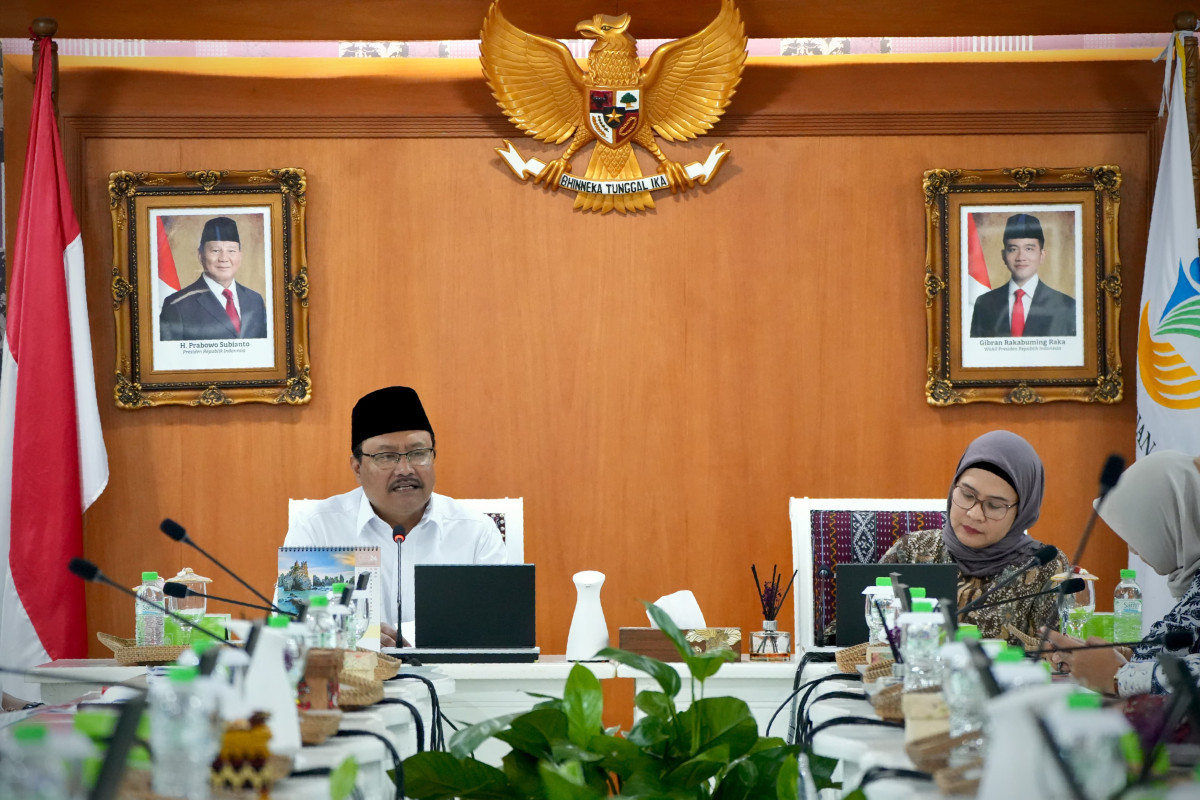Jakarta (January 6th, 2025)—Minister of Social Affairs Saifullah Yusuf (Gus Ipul) met with Indramayu Regent Nina Agustina at the Ministry of Social Affairs Office on Monday (January 6th, 2025) to discuss the progress of Kampung Nelayan Sejahtera (Prosperous Fishermen's Village), which is currently being worked on.
Kampung Nelayan Sejahtera which was located in Eretan Kulon Village, Kandanghaur Subdistrict, Indramayu Regency, West Java, was a collaboration pilot project undertaken by Ministry of Social Affairs (MoSA) in collaboration with Indramayu Regency government, National Board of Zakat (Baznas) and Habitat for Humanity.
Gus Ipul said that Kampung Nelayan Sejahtera would serve as a cooperation example that could be applied in other regions, especially if the results were satisfactory for both the beneficiaries and all parties involved.
"We want to create a collaborative project model with the region and private sector to establish a role model of cooperation whose results can be seen and felt significantly. So, the beneficiaries are satisfied, and those who collaborated are also satisfied," Gus Ipul said.
Kampung Nelayan Sejahtera in Eretan Kulon Village was a village built to relocate 93 families affected by tidal flooding. The construction of 93 Integrated Welfare Houses (RST) measuring 36 square meters with a land area of 60 square meters which were built on a 1.6-hectare plot of land.
"By January 15th, 2024, the physical construction progress of the Integrated Prosperous Houses (RST) is targeted to reach 90 percent," Director General of Social Empowerment, Mira Riyati Kurniasih.
In addition to houses, the residents of Eretan Kulon Village would receive various facilities to restore social functions and improve the quality of life for the elderly, children, and persons with disabilities. A community center, mosque, craft and MSME center, child—and elderly-friendly park, sports facilities, public toilets, and good accessibility would be built to complement the public facilities in the village.
Not only relocating residents affected by tidal flooding, MoSA in collaboration with Indramayu local government, was also planning empowerment programs that could be carried out by women who would later live in Kampung Nelayan Sejahtera.
"The women have received training to make fish-based food products such as fish meatballs and fish nuggets. We hope that these products can be distributed later," Indramayu Regent Nina Agustina said.
In addition to fish-based food processing training, MoSA also provided various types of training for the residents of Eretan Kulon Village. There were welding, eco print, and digital marketing training sessions that the villagers had enthusiastically participated in. It was hoped that these various types of training could support the residents' standard of living and not just rely on fishing.
"By January 15th, 2024, the physical construction progress of the Integrated Prosperous Houses (RST) is targeted to reach 90 percent," Director General of Social Empowerment, Mira Riyati Kurniasih.
In addition to houses, the residents of Eretan Kulon Village would receive various facilities to restore social functions and improve the quality of life for the elderly, children, and persons with disabilities. A community center, mosque, craft and MSME center, child—and elderly-friendly park, sports facilities, public toilets, and good accessibility would be built to complement the public facilities in the village.
Not only relocating residents affected by tidal flooding, MoSA in collaboration with Indramayu local government, was also planning empowerment programs that could be carried out by women who would later live in Kampung Nelayan Sejahtera.
"The women have received training to make fish-based food products such as fish meatballs and fish nuggets. We hope that these products can be distributed later," Indramayu Regent Nina Agustina said.
In addition to fish-based food processing training, MoSA also provided various types of training for the residents of Eretan Kulon Village. There were welding, eco print, and digital marketing training sessions that the villagers had enthusiastically participated in. It was hoped that these various types of training could support the residents' standard of living and not just rely on fishing. Bahasa
Bahasa
 English
English


